Chetan Anand
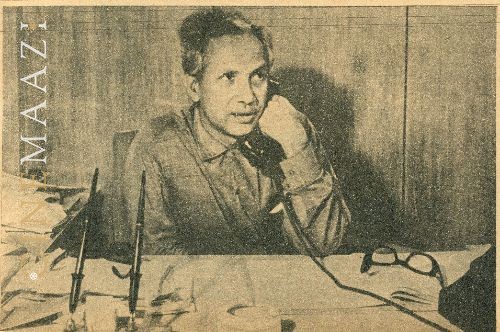
Subscribe to read full article
This section is for paid subscribers only. Our subscription is only $37/- for one full year.
You get unlimited access to all paid section and features on the website with this subscription.
Not ready for a full subscription?
You can access this article for $2 , and have it saved to your account for one year.
- Real Name: Chetan Anand
- Born: 3 January, 1915 (Gurdaspur, Punjab, British India)
- Died: 6 July, 1997 (Mumbai, Maharashtra)
- Primary Cinema: Hindi
- Parents: Pishori Lal Anand
- Spouse: Uma Anand
- Children: Ketan Anand , Vivek Anand
Screenwriter, producer and director Chetan Anand was known for his visionary stories and filmmaking. His debut film Neecha Nagar (1946) became the first Hindi film to win the Grand Prix Prize (now Golden Palm) at the Cannes Film Festival. He also went to win several other accolades for his films such as the National Award and more.
Born on 3rd January in 1915 in a well to do family to an advocate father Pishori Lal Anand, he was the eldest of the three brothers, including Vijay Anand and Dev Anand, all of which went on to become highly acclaimed figures of the Hindi film industry. Completing his primary education from the Gurukul Kangri Vishwavidyalay, he went on to obtain a degree in English literature from Government College, Lahore. Hugely interested in politics since a young age he joined the Indian National Congress in the 1930s subsequently working for BBC and teaching at Doon School Dehradun, before shifting his base to Bombay.
In the early 40s, Anand while teaching at Doon School wrote a script based on the life of Emperor Ashoka which he went on to show to director Phani Majumdar in Bombay. Later in 1944, Majumdar cast him as the lead for his film Rajkumar, which was probably never released due to its lack of mention in any film repository, but it surely did mark Anand’s entry into cinema. He was also involved with the Indian People’s Theatre Association at that time, working in various productions of the theatre group.
Anand made his debut as a director with the 1946 film Neecha Nagar. A wildly critically acclaimed film, it went on to win the very first Grand Prix Prize at Cannes, a feat relatively unknown for Hindi cinema. The film never got a wide release here back in India due to its lack of song and dance sequences as well as it carried the brunt of the political climate of the nation with the producers moving to Pakistan post-partition. In his biography The Poetics of Film, Uma Anand mentions how Satyajit Ray got inspired by Anand’s Neecha Nagar to continue with the making of his first film. Neecha Nagar also marked the debut of Indian cinema stalwarts like Kamini Kaushal and Pandit Ravi Shankar as an actor and music composer respectively.
By 1949, he along with his brother Dev Anand set up their own production house Navketan Films, under whose banner he directed his second film Afsar (1950), based on Russian playwright Nikolai Gogol’s play, The Inspector General. A moderate success, the film starred Dev Anand and Suraiya in leading roles. It was followed by Aandhiyan (1952) and Taxi Driver (1954), both of which were huge successes. He also occasionally dabbled into acting in films like Humsafar (1953) directed by A N Banerjee, Arpan and Anjali, both directed by Anand himself and released in 1957. His other acting credits included Kala Bazaar (1960), directed by his younger brother Vijay Anand, Kinare Kinare (1963) and Hindustan Ki Kasam (1974), both directed by him.
He split up with Dev Anand in the 1960s to establish his own production company Himalay Films, collaborating extensively with music composer Madan Mohan, lyricist Kaifi Azmi, cinematographer Jal Mistry and actress Priya Rajvansh.
In 1964, he made Haqeeqat starring Dharmendra, Balraj Sahni and Priya Rajvansh. A landmark film in many senses, it was made two years after the China War debacle and was the first Hindi film to take a realistic look at the war instead of glorifying it. It went on to win the National Film Award for Second Best Feature Film. It was followed by Aakhiri Khat (1966), which marked the debut of Superstar Rajesh Khanna, although G P Sippy’s Raaz introducting Rajesh Khanna was released before Aakhri Khat. The film also starred Indrani Mukherjee in the lead role. The film was selected as India’s entry for the Best Foreign Language film at the 40th Academy Awards but wasn’t nominated. It was then remade in Tamil as Poonthalir (1979) starring Sivakumar and Sujatha, In Telugu as Chinnari Chitti Babu (1981) and in Turkish as Garip Kuş (1974).
In 1970, he made Heer Ranjha, starring Raaj Kumar, Priya Rajvansh, Pran, Prithviraj Kapoor and more. The film was highly acclaimed for its soundtrack composed by Madan Mohan and lyrics by Kaifi Azmi. The songs like Milo na tum to hum ghabrayein sung by Lata Mangeshkar, Yeh duniya yeh mehfil mere kaam ki nahi and Tere kooche mein tera deewana aaj dil kho baitha both sung by Mohammed Rafi were huge hits, and remain popular till date. The camerawork of cinematographer Jal Mistry also gained recognition, who had shot most of Chetan Anand’s films. The film also earned Mistry a Filmfare Award for best Cinematography in 1971.
His next few films were Hanste Zakhm (1973), Hindustan Ki Kasam (1973), Jaaneman (1976) and Saaheb Bahadur (1977). He collaborated again with Rajesh Khanna in the 1981 film Kudrat. Based on the theme of reincarnation the film’s soundtrack composed by R D Burman was a hit, especially the song Hume tumse pyar kitna sung by Kishore Kumar and a female version sung by Parveen Sultana. The film also helped the now down sliding career of Rajesh Khanna, achieve a bit of success with the hit. His last directorial was the 1986 film Haathon Ki Lakeeren starring Sanjeev Kumar, Zeenat Aman, Jackie Shroff and more.
Apart from directing feature films he also directed the acclaimed television serial Param Veer Chakra for Doordarshan in 1988. He married journalist and actress Uma Anand in 1943 and had two sons with her, film director Ketan Anand and Vivek Anand. Chetan Anand was in a long relationship with actress Priya Rajvansh whom he fell in love with during the shooting of Haqeeqat but could never get married. Rajvansh was a permanent character in almost all the films Anand directed, and they continued to be together till his death.
Chetan Anand passed away on 6th July in 1997, leaving behind a long and rich legacy of films for Indian cinema.
-
Filmography (13)
SortRole
-
Haathon Ki Lakeeren 1986
-
Saheb Bahadur 1977
-
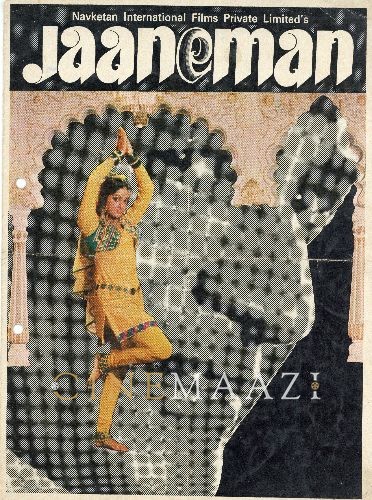
Jaaneman 1976
-

Hindustan Ki Kasam 1973
-
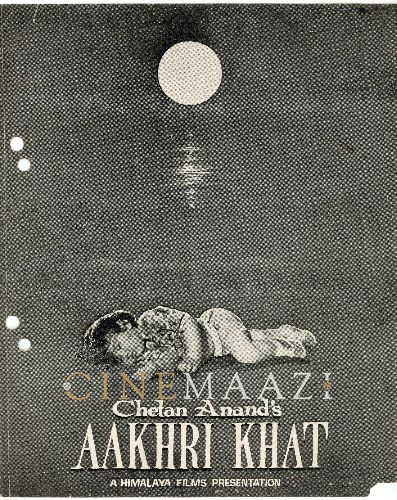
Aakhri Khat 1966
-
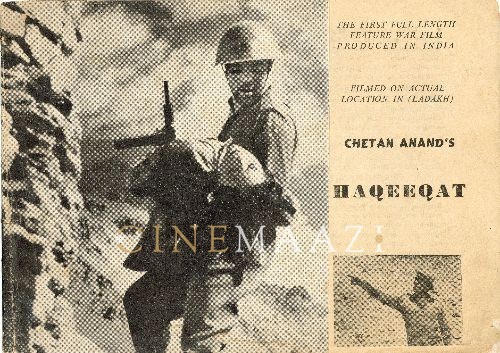
Haqeeqat 1964
-

Kinare Kinare 1963
-
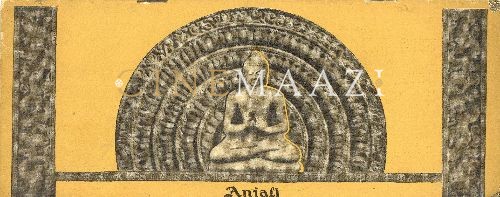
Anjali 1957
-
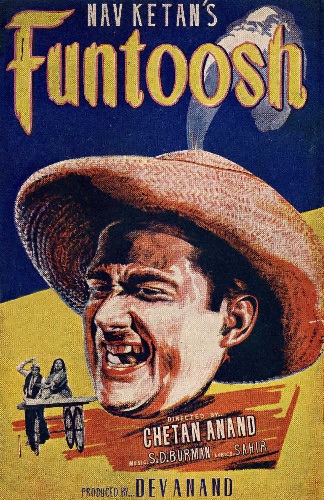
Funtoosh 1956
-
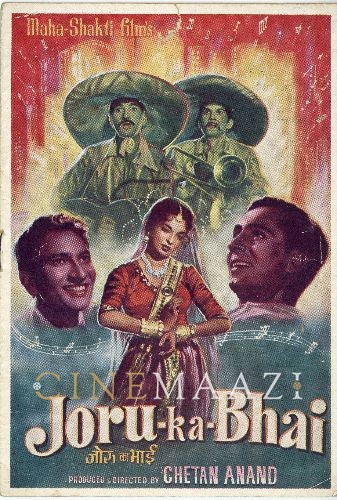
Joru Ka Bhai 1955
-

Taxi Driver 1954
-

Aandhiyan 1952
-









.jpg)



